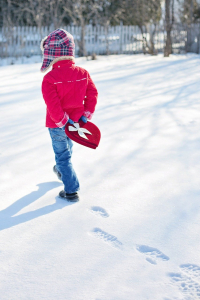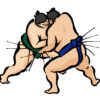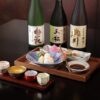What is the meaning of Japanese ARA ARA, Arara? あらあら あらら

As mentioned above, we often hear words such as “ara ara(あらあら)", “arara(あらら)" or “a-rara(あーらら)" in Japanese conversation.
What do these mean and under what circumstances are they used?
What is the meaning of Japanese ARA ARA, Arara?
A word that repeats two interjections, “Ara". It is a word that is spoken when you are impressed, surprised, or impressed.
It corresponds to “oh", “oh dear", “uh-oh", “oh my goodness", and “oh my god" in English.
It is often thought that women use it a lot, but in some cases men also use it.
For example,
Ara ara, taihen.
(あらあら、大変)
Oh, What happened?
Ara ara, konna ni chirakashite!
(あらあら、こんなに散らかして!)
Oh my goodness, look at this mess!
Ara ara, daijoubu desuka?
(あらあら、大丈夫ですか?)
Oh dear, are you all right?
Ara ara, wazawaza sumimasen.
(あらあら、わざわざすみません。)
Oh my goodness, thank you for doing this.
Ara ara, doushimashou.
(あらあら、どうしましょう)
Oh, what should I do?
Arara, doushite konna koto ni natta no?
(あらら、どうしてこんなことになったの?)
Oh my, why did this happen?
Arara, kyou wa umaku ikanai.
(あらら、今日はうまくいかない。)
Oh my goodness, it doesn’t work today.
Ara-, sore wa shirimasen deshita.
(あらー、それは知りませんでした。)
Oh no, I didn’t know that.
Ara-gomenne!
(あらー、ごめんね!)
Oh, sorry!
Ara-, totemo suteki na doresu ne!
(あらー、とても素敵なドレスね!)
Wow, it’s a very beautiful dress!
Ara-, koinu ga umaretano?
(あらー、子犬が産まれたの?)
Wow, puppies were born, right?
Ara-, okosan mou konna ni ookikunattano?
(あらー、お子さんもうこんなに大きくなったの?)
What? Your child has grown so big?
Ara-, sono ashi doushita no?
(あらー、その脚どうしたの?)
Oh my goodness, what happened to your leg?
Ara, arara!
(あら、あらら!)
Oh, oh!
Arararara-
(あららららー)
Ahhhhhh
“Ara" “Arara" that men can also use
There are also “ara" and “arara" that are also used by men.
The following are all used regardless of gender.
Ara ara, doushitano?
(あらあら、どうしたの?)
Oh, what’s wrong?
Ara ara, sore wa taihen deshita ne.
(あらあら、それは大変でしたね。)
Wow, that must’ve been hard.
Ara-, daijoubu desuka?
(あらー、大丈夫ですか?)
Oh my, are you okay?
Ara-, yacchaimashita-.
(あらー、やっちゃいましたー。)
Oh God, I’ve just done it.
Ara-, kore wa hidoi.
(あらー、これはひどい。)
Oh, this is terrible.
Ara-, sore wa shitsurei shimashita.
(あらー、それは失礼しました。)
Oh, I am sorry about it.
Ara-, mou tsuita no?
(あらー、もう着いたの?)
Oh, have you arrived yet?
Ara-, sonna koto itta no?
(あらー、そんなこと言ったの?)
Oh dear, did you say that?
A-rara, shiranaiyo.
(あーらら、知らないよ。)
Oh…, I won’t get involved no matter what happens.
A-rara, jibun de dounika shite ne.
(あーらら、自分でどうにかしてね。)
Oh dear, sort it out by yourself.
“Ara ara", “ara-" and “arara" are often paraphrased as “oya oya(おやおや)" and “oya maa(おやまあ)". These are also interjections.
“Ara-ara" is an interjection that expresses surprise, but it is often uttered in a relatively calm tone. Although the speaker is surprised, he/she is not upset and often has control over his/her emotions.
In anime and two-dimensional creative works, “Ara-ara-type characters(ara ara kei kyarakutaa: あらあら系キャラクター)" have recently appeared, and readers and fans are familiar with them.
What does “ara ara ufufu(あらあらうふふ)" mean?
“Aara ara ufufu(あらあらうふふ)" is a combination of “ara ara" and “ufufu(うふふ)". Both of these two words have existed for a long time in Japanese. It is a word often used by women.
“Ufufu" is also an interjection, a small laugh that comes out unintentionally. What “Arara ufufu" means is that there is a small surprise situation, but it’s a good thing, so a laugh came out unintentionally.
It may also be used in a different sense. For example, suppose someone does something that isn’t very pleasing. And the person (female) who is there say “arara ufufu" which means not to affirm or deny that behavior.
I’ve never seen a Japanese woman saying “arara ufufu", but it seems like a technique that doesn’t disturb the mood of the place.
















